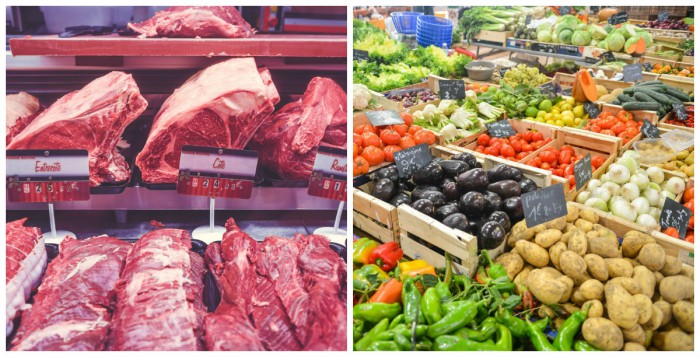11th December 2015 Montreal, Canada
Climate Change Gets Personal

The climate change conference in Paris wrapped up today. Over the past two weeks there has been an array of commitments by governments around the World, including the UK’s, to tackle the climate change phenomenon and reduce the emissions that contribute to it. But what action are we all going to take as individuals?
My family and I gave up eating meat for four weeks in the lead-up to and during the conference. We went from being heavy meat eaters to being pescatarian (i.e. eating fish but not meat), a term I had not previously come across. This was part of a climate challenge across the UK’s diplomatic network in Canada. Our Consul General in Vancouver did likewise, whilst others walked to work.
You might ask why give up eating meat? A recent study by Chatham House, a UK think tank, put livestock’s contribution to global emissions at 15%, higher than the 14% contributed by all forms of transport. This might sound surprising until you realise we are farming 60 billion animals per year to produce meat, milk and eggs. Livestock emissions contain methane, nitrous dioxide and carbon dioxide. But not all livestock has an equal impact. According to the UN’s Food and Agriculture Organisation (FAO), cattle are responsible for 65% of all livestock emissions, in large part because of the methane they produce. By contrast pigs and chickens are responsible for 9% and 8% respectively.
I estimate that my family of four’s commitment has saved about 275 kg of CO2, or roughly enough for the family to fly half-way back to London from Montreal. There have been challenges. Try explaining to a two-year old that he can’t have sausages because he has to reduce his carbon footprint. Nurseries tend not to provide vegetarian menus. If you’re attending formal dinners, you generally have to order a vegetarian option in advance. And booking a restaurant in Montreal with a decent range of non-meat options proved harder than expected. But there have also been significant positives. Our grocery bill has definitely gone down and we feel healthier for eating less meat.
Can eating less meat really tackle #climatechange? https://t.co/gbLnjwmHdF #environment #COP21 pic.twitter.com/cYWYT8WQAx
— World Economic Forum (@wef) December 9, 2015
This is no coincidence. Excessive meat consumption contributes to obesity, cancer and type 2 diabetes. The latter is a personal concern, given that it runs in my family. A high meat diet is classified as consuming over 100g per day. People in the US consume over 250g per day on average or four times the recommended amount, with Europe not far behind. Global meat consumption is also rising rapidly, at a rate of 75% with the number of livestock animals set to double by 2050. Yet there seems to be very little awareness of the impact that this will have.
There is a role for governments to address this and to help shift attitudes towards eating less meat. We’ve had commitments on cleaner transport: both the UK and Québec have joined the Zero Emission Vehicle (ZEV) Alliance, with the UK committing to almost all cars and vans being zero emission by 2050. A next step could be a strong commitment on cleaner diets.
Scientists can play an invaluable role too. Sir Paul Nurse, former President of the Royal Society and Nobel Prize winner, was in Montreal earlier this week extolling the virtue of science in collecting a large body of objective data. Scientists have already established a body of evidence to show that climate change is happening and it is induced by human activity. The more evidence that eating less meat is both healthier and more environmentally friendly, the better.
Now that Paris has finished and with it our challenge, will my family continue cutting out meat from our diet? Not entirely. But we will try to eat less, particularly red meat. I’m encouraged by the government commitments made in Paris, and the engagement by civil society, the media and business to tackle climate change. But what action are we all going to take as individuals? Reducing our meat consumption is a good place to start, not only to improve the planet’s health, but our own. And whilst we’re at it we might all save a bit of cash to support our longer, healthier lives.

The hope of a cleaner environment for all people of the world…